Before you trust someone with your life savings or your financial plan, it’s essential to do your own due diligence. Choosing the right advisor can have a massive impact on your financial future, and that impact can be either positive or negative.
I’m Steve Boorstein, a Certified Financial Planner® professional and founder of RockCrest Financial LLC. In this article, I’ve compiled 12 critical questions you should ask any financial advisor you’re seriously considering. Stick around to the end, and I’ll share one bonus question that can reveal even more than the others.
1. Are You a Fiduciary 100% of the Time?
You want someone who’s legally obligated to act in your best interest all the time, not just when it’s convenient. If an advisor is only a fiduciary some of the time, that should raise red flags.
2. How Do You Get Paid?
Is the advisor compensated through:
- Commissions?
- A percentage of assets under management (AUM)?
- Flat or hourly fees?
Ask if their compensation changes based on what they recommend. Their answer could influence the quality and objectivity of your advice.
3. What Will It Cost Me?
Know exactly what you’re paying, when you’re paying it, and whether fees are transparent. If they say, “You’re not paying a fee out of pocket because it’s baked into the product,” proceed with caution, this often means hidden costs.
4. What Licenses and Certifications Do You Hold?
Look for well-respected and long-standing credentials such as the CFP® (Certified Financial Planner®) designation. Look for specific education and experience, beyond basic insurance or brokerage licenses, unless that’s all you feel is needed.
5. What’s Your Financial Planning Philosophy?
Do they focus only on investments, or will they help you with:
- Tax planning
- Cash flow management
- Estate planning
- Insurance and risk management
- Asset protection strategies
Also, ask how they coordinate with other professionals in your financial life, like your CPA, estate attorney, mortgage broker, and insurance agent.
6. What’s Your Investment Philosophy?
This one’s big. Find out:
- Do they require you to transfer all your investments to them?
- Will they give advice on assets they don’t manage?
- What types of investments do they use (ETFs, mutual funds, annuities)?
- Can they evaluate or incorporate real estate into your plan?
- Do they offer private placements, 1031 DSTs, or opportunity zone funds?
Make sure they can serve your specific needs and have experience with the investment types that matter to you.
7. Who Is Your Ideal Client?
Are you a good fit for their practice? An advisor who specializes in working with people like you is more likely to understand your goals and challenges… and offer relevant, actionable advice.
8. Can I See a Sample Financial Plan?
You’re looking for detail and customization. If they present a boilerplate or one-page plan, it may not be enough. A great financial plan should reflect your unique life, goals, and financial complexity.
9. How Often Will We Meet or Check In?
Understand their communication cadence:
- How many meetings per year and how long do meetings generally last?
- In-person vs. virtual options?
- Can you request extra meetings?
- How do they handle questions between meetings (email, text, phone)?
You need an advisor who’s accessible, not someone who disappears after onboarding.
10. Do You Provide Written Advice or Just Verbal Recommendations?
Written advice = clarity, documentation, and accountability. Don’t settle for vague conversations that leave no paper trail.
11. What Kind of Technology and Tools Do You Offer?
Modern tools can make financial planning easier and more collaborative. Ask for a demo of:
- Online dashboards
- Secure document sharing
- Planning software
And most importantly, make sure you’re comfortable using them.
12. What Happens If I Decide to Leave?
You should be able to walk away without penalties or drama. Ask about exit fees, account transfer processes, and whether they hold any of your assets hostage.
Bonus Question: How Will You Add Value to Me?
Ask the advisor to share real examples of how they’ve helped clients in situations similar to yours. It’s one thing to talk theory, but it’s another to show how they’ve delivered results in practice.
Final Thoughts
Hiring the right financial advisor can truly change your life. But hiring the wrong one? It could cost you thousands or even tens of thousands in fees, bad advice or even no advice!
So ask smart questions, demand clear answers, and most of all—don’t settle.
If you found this article helpful, please share it with someone who’s considering hiring a financial advisor.
Author:
Steve Boorstein, CFP®, Financial Planner & Founder of RockCrest Financial

